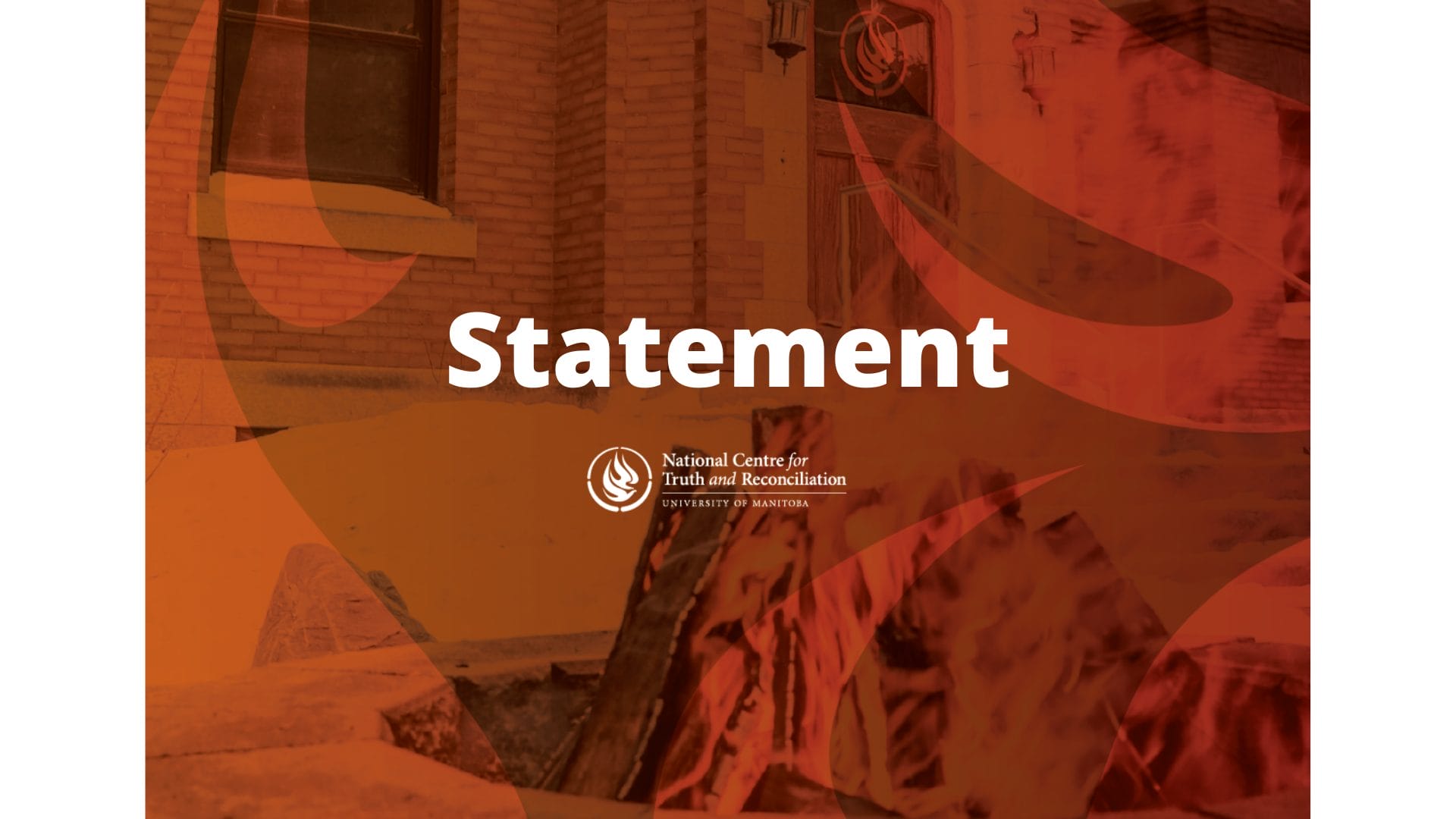NCTR and Oblates of Mary Immaculate complete initial review of Oblate Archive in Rome

Historic visit to Rome builds on a year of partnership between the two organizations, highlighted by a commitment to expand access to residential school records
WINNIPEG ‐ The National Centre for Truth and Reconciliation (NCTR) and the Missionary Oblates of Mary Immaculate (The Oblates) have completed a visit to the Oblate General House archive in Rome, Italy, where the NCTR was granted full access to identify records that may relate to the residential school legacy.
Mr. Raymond Frogner, Head of Archives for the NCTR, completed his preliminary, five-day assessment of the Oblate archives in Rome. Items reviewed by Mr. Frogner include photographs of life at residential schools, administrative records from Oblates in Canada and the supervisory office in Rome, and records of the Oblate members’ service to the Order.
“We welcomed the invitation by the Oblates for an initial assessment of the General House archives in Rome,” said Stephanie Scott, Executive Director for the NCTR. “The records we assessed will help compile a more accurate timeline of Oblate members at residential schools throughout Canada. Access to these records is critical to learning the full history and impact of residential schools, as we work to honour Survivors, their families, and the children who did not make it home.”
The NCTR and Oblate archivists will work quickly to digitize and transfer relevant items that were identified during this initial assessment. Additional work will also be undertaken to compare the NCTR’s findings at the Oblate General Archives with records held in Canada to determine if additional transfers will be required and to identify any potential discrepancies in the records.
This visit took place one year following a public agreement between the two organizations to expedite access to residential school records. Since July 2021:
- More than 10,000 additional Oblate records have been digitized and inventoried, in addition to the 40,000 documents previously transferred to the NCTR;
- 41 Codices (or “daily logs”), in connection to 16 former residential schools, have been digitized and inventoried. Work to digitize the remaining Codices is ongoing;
- The names of 400 Oblates who worked in residential schools as well as close to 1,000 students have been documented;
- 165 access requests have been facilitated for researchers, journalists and Indigenous intergenerational survivors;
- Agreements have been reached with four provincial archives to transfer relevant residential school records, while continuing to preserve this history in the geographic area where it occurred; and
- Additional archival resources have been funded by the Oblates and the NCTR at all four locations.
- Indigenous communities are providing direction to interrogate the records and understand the experience of children at residential schools.
- Indigenous community leaders are prioritizing the investigation of human rights violations, evidence of the loss or abuse of children.
- Appropriate Indigenous community social protocols will inform the acquisition, storage, sharing and preservation of the discovered knowledge.
Building on this work, the Oblates and NCTR continue to collaborate with Indigenous leaders, provincial archives, government officials and Catholic entities to collect and share best practices on inventory management and record disclosure, with an emphasis on expanding access and to acknowledge and promote Indigenous perspectives on the knowledge and understanding of these events.
As this work continues, the Oblates are taking additional steps to accelerate access to personnel files in a way that complies with relevant privacy legislation and Indigenous knowledge and social protocols. It has been a long-standing practice to keep personnel records sealed until 50 years after an Oblates’ passing. An updated agreement will retire this policy and provide accountable access to personnel files.
“Critical to our Truth and Reconciliation efforts to show transparency has been the availability of our records, and I am hopeful that these steps will allow access to personnel records in every Canadian province as soon as legally possible, “said Father Ken Thorson, Provincial Superior of the Missionary Oblates of Mary Immaculate, OMI Lacombe Canada Province. “I want to thank the National Centre for Truth and Reconciliation for their tireless work to memorialize residential school records and for their expert guidance and partnership with regards to access to Oblate files. While it has been a constructive year of partnership, I know that these steps are only the beginning of a continued journey towards truth, justice, healing and reconciliation.”
About the NCTR
The National Centre for Truth and Reconciliation (NCTR) in an Indigenous directed research centre created to preserve the memory of Canada’s Residential School system and legacy. Not just for a few years, but forever. It is the responsibility of the NCTR to steward and share the truths of Survivors’ experiences in a respectful way and to work with Indigenous and non‐Indigenous educators, researchers, communities, decision‐makers and the general public to support the ongoing work of Truth, Reconciliation, and healing across Canada and beyond.
About the Missionary Oblates of Mary Immaculate
The Missionary Oblates of Mary Immaculate were founded in 1816 by St. Eugene de Mazenod in Aix en Provence, France. The community arrived in Canada in 1841. After their arrival, Oblate priests and brothers worked across Canada and throughout the far north in a variety of areas, including residential schools, parish and retreat ministry, and hospital and prison chaplaincies. OMI Lacombe Canada Province is based in Ottawa, ON, and Notre‐Dame‐du‐Cap Province is based in Richelieu, QC.
-30-
For more information:
NCTR: media@emdashagency.ca
OMI Lacombe Canada Province: information@omilacombe.ca
